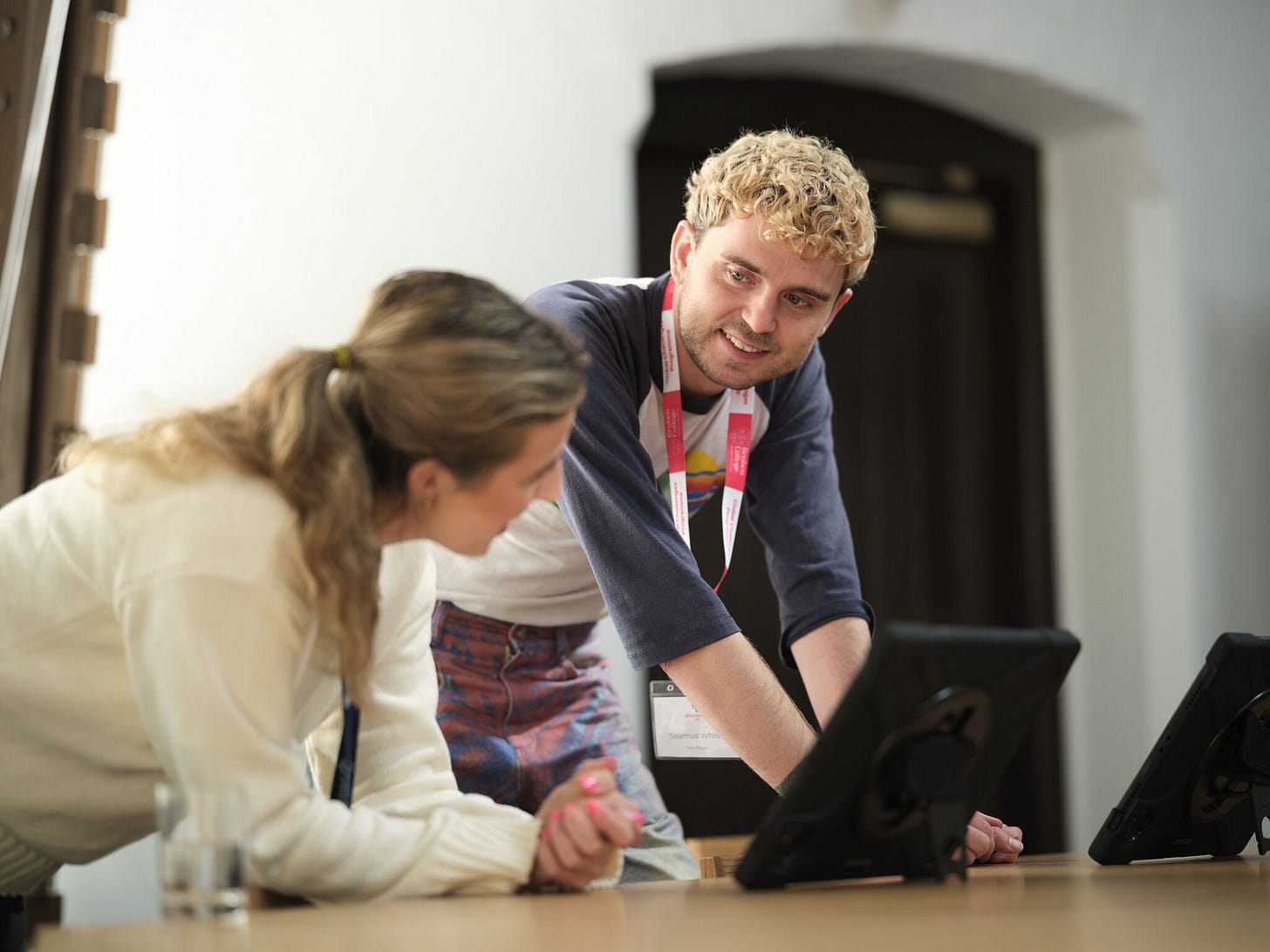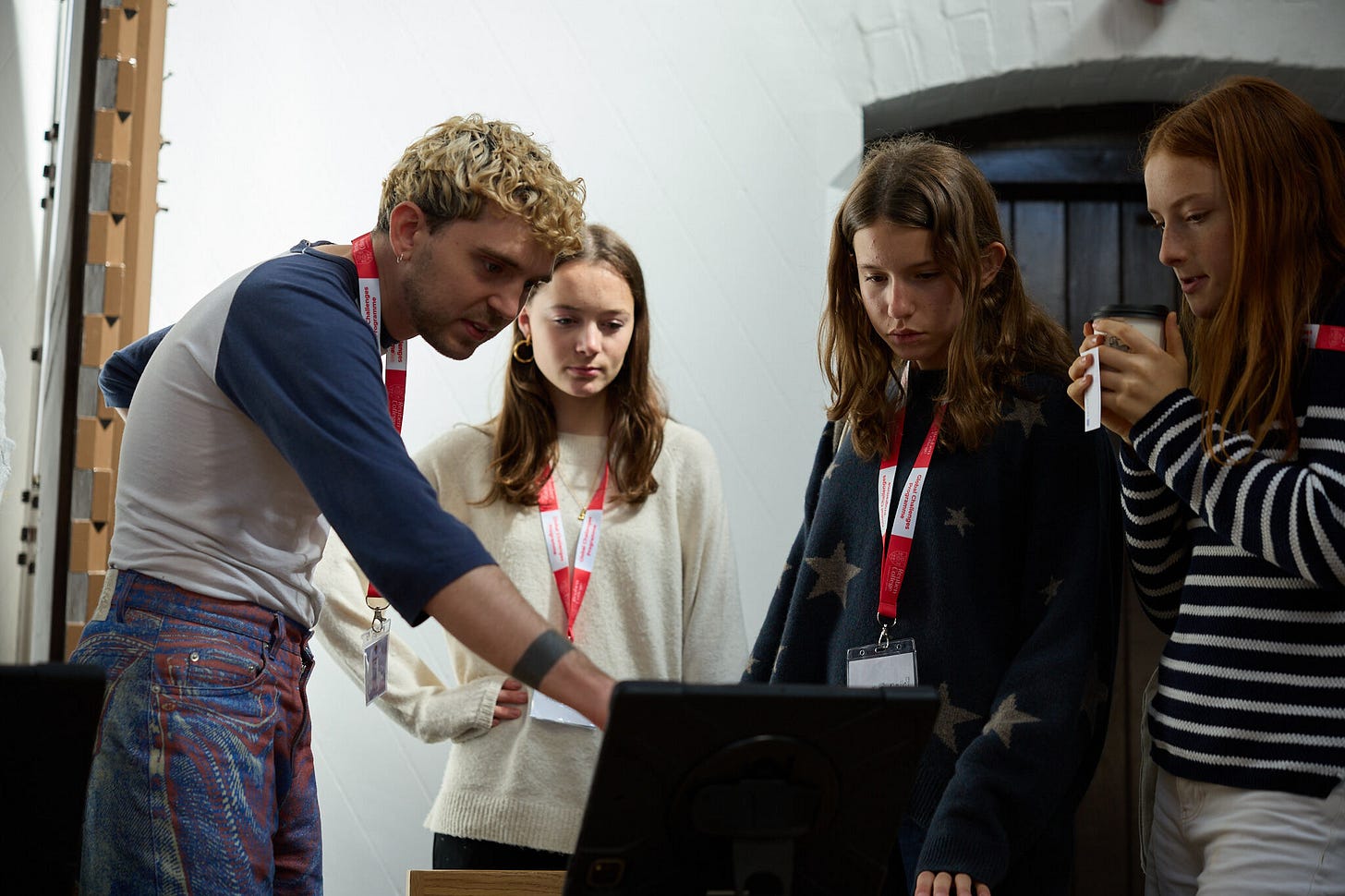Generation AI: Youth Perspectives
In partnership with The Global Challenge Programme, Reuben College, University of Oxford, Fam co-convened Generation AI: The Future of Technology & Young People. It was a two-day symposium that brought together world-class researchers, policymakers, and innovators to explore AI's impact on children and young people flourishing. Among the distinguished speakers were Lord Tarassenko, Baroness Kidron, Sir Anthony Seldon, Professor Sarah-Jayne Blakemore and Fam’s own Zelda Yanovich, each offering unique insights into how advanced AI might impact children and young people. Fam led a research stream on interdisciplinary research, an innovation showcase and co-launched an Ethical Design Challenge that considered the early years through to skills for the future. More on that will be posted soon inviting deep thinking on innovative solutions to the resource, policy, research, collective response and design challenges that will enable children and their families to flourish throughout the lifecourse in an AI era.
On the second day of the symposium, young attendees —14 to 18-year-olds— also brought their voices, hopes, and dreams to the table. In academic and industry discussions about AI, the voices of children and young people—those whose lives will be shaped the most by technological advancements—are frequently absent. Fam contributed to bridging that gap to ensure that the young people present weren't just passive participants but active contributors to the conversation.
One workshop led by Fam enabled young participants to dive deeper into AI and its future possibilities. The workshop was a place for them to reflect on critical challenges and questions, share what they’d learned and what they were thinking about, building on their own experiences with designing with AI. It asked them to imagine what AI could become and enable in the future. The young people weren’t shy about expressing their excitement and confusion, and their feedback offered an authentic glimpse into how they view the world of AI.
What Did the Young People Think?
Participants provided feedback on their feelings about AI, the issues raised and the topics they were most excited to explore. Their responses revealed a mix of curiosity, concern, and hope.
Excitement: Many were eager to see how AI could transform healthcare, with personalised medicine and AI diagnostics being key areas of interest. Others looked forward to using AI for creative expression, visualising their ideas in ways previously unimaginable. Several participants were also excited about the opportunity to meet like-minded peers, reinforcing that these events are as much about connection and learning in community.
Confusion: Despite their excitement, there were also areas where participants felt uncertain. A recurring question was how AI algorithms actually function—what happens behind the scenes in the code? There were also concerns about the role of big corporations in AI’s development and regulation, with some attendees wondering how these powerful entities will be held accountable. Lastly, many young people expressed confusion about how to integrate AI into their day-to-day lives, a question that points to the need for clearer, more accessible paths to adoption.
Hopes for AI’s Future: When asked to imagine the future of AI, the young people painted a diverse picture. Some saw AI as a tool to tackle major global challenges like climate change, while others dreamed of personal AI assistants that would simplify everyday tasks or enhance their cognitive abilities. Notably, there was also a desire for AI to become more open and accessible, enabling them to shape and use it in ways that benefit their personal and professional growth.
Creating Space for Young Voices
At Fam, we understand that the advanced technology we are building will shape the future that today’s children and young people will inherit. This is why it’s so important to create spaces where their voices aren’t just welcomed but centred- moving beyond them feeling listened to, and heard, to them having agency in co-shaping and co-producing. At the Generation AI Symposium these 14 to 18-year-olds didn’t just want to be informed about AI—they wanted to be part of shaping what AI could become in their lifetimes.
The experience was an important reminder that while academic and industry experts are crucial in shaping the trajectory of AI, children and young people bring a fresh, valuable perspective—one that is grounded in the future they hope to create.
At Fam, we remain committed to ensuring that children and young people have voice and agency in every discussion about their future. We are inspired by the contributions made by these young people at the Generation AI Symposium and look forward to continuing to create spaces where young people and children’s ideas can flourish.
We’d love to hear from you. What questions do you want us to tackle? What ideas are inspiring you in your work for kids and families?
Let us know at signals@famstudio.co








